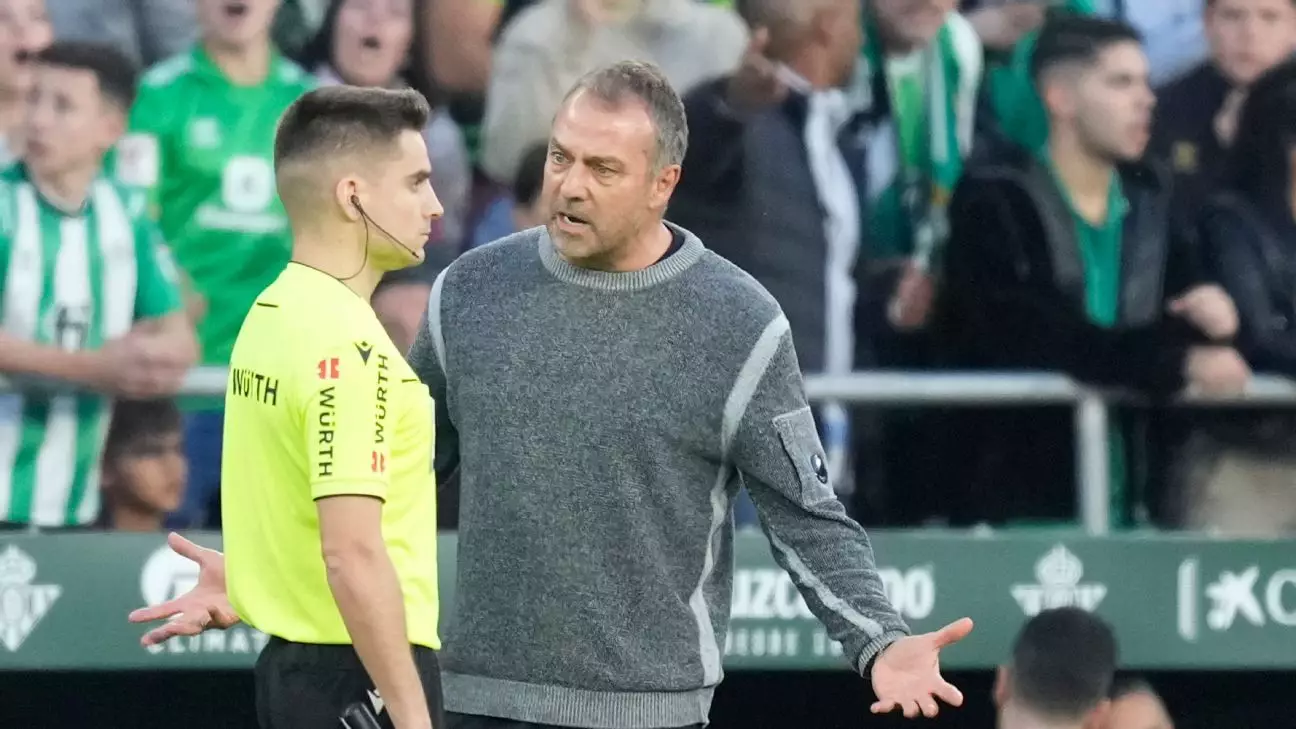The atmosphere around refereeing in Spanish football has reached a breaking point in recent weeks, highlighted by Barcelona coach Hansi Flick’s recent outspoken support for match officials. This critical analysis explores the systemic issues plaguing Spanish referees, the challenges they face, and the broader implications for the sport in La Liga.
The alarming situation began to crystallize when referee José Luis Munuera Montero shared his experience of being unable to leave his house due to death threats. This revelation serves as a sobering reminder of the growing hostility towards match officials in Spanish football. The situation escalated dramatically following Real Madrid’s formal complaint regarding officiating standards, accusing the trusted figureheads of “adulterating” the competition. Such accusations inject doubt into the integrity of the league and paint a dismal picture of the treatment referees receive, which has led to an oppressive environment that looks less like a professional sporting atmosphere and more like a battleground.
Flick’s impassioned defense of referees underscores a widespread concern that the volatility of football rivalries has breached an essential line. Commenting on the treatment of referees, he asserts the need to consider their personal lives and families, suggesting that those critiques should constitute an ethical awakening across the sport. He emphasizes the importance of remembering that, at their core, referees are human beings capable of making mistakes—something all stakeholders in football, from players to coaches, should recognize.
Modern football has introduced tools like Video Assistant Referee (VAR) to enhance officiating, which, while intended to reduce human error, has ironically complicated matters. Flick argues that the introduction of VAR only increases the bureaucratic load on referees who already face intense scrutiny. His point that the earlier iterations of football thrived without VAR serves as a reflection on whether the solution is genuinely better technology or a deeper understanding and acceptance from all parties involved. If referees are to perform without the weight of widespread condemnation, trust must be rebuilt between match officials, players, coaches, and clubs.
This critical juncture has prompted an examination of the refereeing system itself, spearheaded by a commission aimed at reforming how officiating is handled in La Liga. The proposed changes seek to enhance the working conditions for referees and curtail the threats and vitriol currently facing them. The question remains whether these reforms can successfully mitigate the financial and emotional toll exacted upon those in charge of enforcing the rules.
What does all this mean for La Liga as a whole? The heightened scrutiny from clubs, compounded by significant decisions that have sparked backlash—like Jude Bellingham’s recent dismissal for foul language—places unprecedented pressure on the entire framework of officiating in Spain. Referees have become scapegoats for clubs positioning themselves in the fiercely competitive landscape of La Liga, where every decision can have far-reaching consequences.
As Barcelona gears up for a crucial match against Las Palmas, maintaining their position at the top of the table is essential, but amidst the uproar regarding refereeing standards, there is an underlying tension that shifts focus from one of the league’s biggest attractions: the competition itself. Flick’s acknowledgment of the human element of refereeing is particularly poignant as Barcelona now faces another round in the Champions League, where the stakes are even higher.
The interaction between referees and clubs in La Liga requires urgent dialogue and reform. As Hansi Flick articulates, protecting referees is vital to safeguarding the integrity of the sport. Without referees, the structure of football crumbles, and all involved must recognize that support, respect, and accountability are essential components to restoring balance in the beautiful game.
